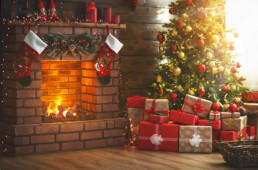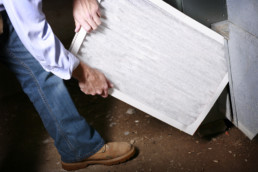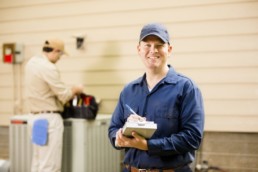Cold In Florida? Better Check These Things Before Turning On Your Heater!
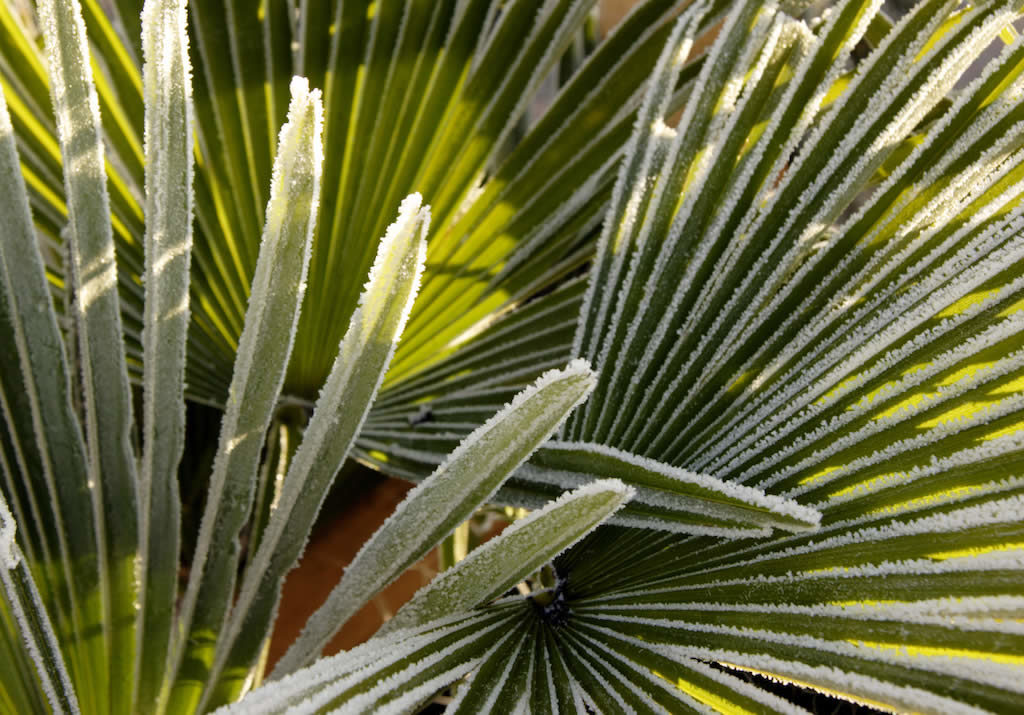
In a hot state like Florida, some of us get excited about cranking up the heater we don’t get to use very often. However, it’s wise to hold off until you’ve made sure that your unit is clean, safe and optimally efficient. This will not only extend its life, but it will save you money, protect the environment and keep you warmer.
When it’s cold outside, a running heater in Florida is just as important as a running heater in Wisconsin. Regular maintenance by your HVAC company is a must, but there are some do-it-yourself steps you can take to get the most out of your equipment.
Check Air Supply Vents
Warm air enters your rooms through air supply vents, so they need to be thoroughly dusted or vacuumed. This is especially true of floor vents that collect dust, debris and pet hair.
Check Air Filters
Depending on the type of system you have, the air filters on the return grills should be changed either every one to three months or every six to 12 months. You may even have washable air filters.
Whatever kind you have, they shouldn’t look dark or have dust and lint clinging to them. Check to see if they need washing or replacing, especially if you know deep down in your heart that it’s been a while. When you hold them up to a light source, plenty of light should shine through.
Not only do filters keep your furnace or air handler heater clean for better performance, but they filter out dust, bacteria, and allergens before those pollutants wind up in your lungs. Everyone agrees that poor air quality in the home is a health risk. Clean filters also eliminate that unpleasant odor of burning dust.
Clean Around the Unit
Clean the entire area around the heat pump, furnace or air handler heater. Clear any obstructions. It goes without saying that chemicals and flammable materials in the vicinity need to be relocated a safe distance away. Dust the exterior of the unit.
Trim back trees or shrubs to prevent contact with heat pump outdoor units, and inspect the condenser coil. That’s the looping length of copper or aluminum that exchanges heat from the air. Excessive dirt will impact efficiency and lead to repairs down the road.
If you have an indoor system, your evaporator coils are internal and are inspected by a technician during routine maintenance.
Play It Safe
For owners of gas furnaces, the importance of having a well-functioning smoke alarm can’t be overstated. It’s time to change the batteries, cover your ears and make sure that the alarm is working properly.
If you don’t have a smoke alarm, get one. Install it today.
Along the same lines, a carbon monoxide detector could save your life. If you have one, replace the batteries. Test it before you turn on the heat.
If the reading on the device exceeds 30, turn off the heater immediately, open all the windows and call your HVAC company. Some experts advise leaving the house until a professional diagnosis and correct the problem.
Finally, make sure that your thermostat is working properly.
Maintaining a running heater in Florida may not be at the top of your priority list, but it’s better to be safe than sorry. The longer a heating system is neglected, the greater the likelihood of malfunctions that call for costly repairs.
Besides, who wants to be caught unawares in a cold snap? Check out our special fall and winter offers and Call or Text us today for more details (941) 203-7955.
Ho Ho Ho No! Your Fireplace May Be Costing You Higher Energy Bills!
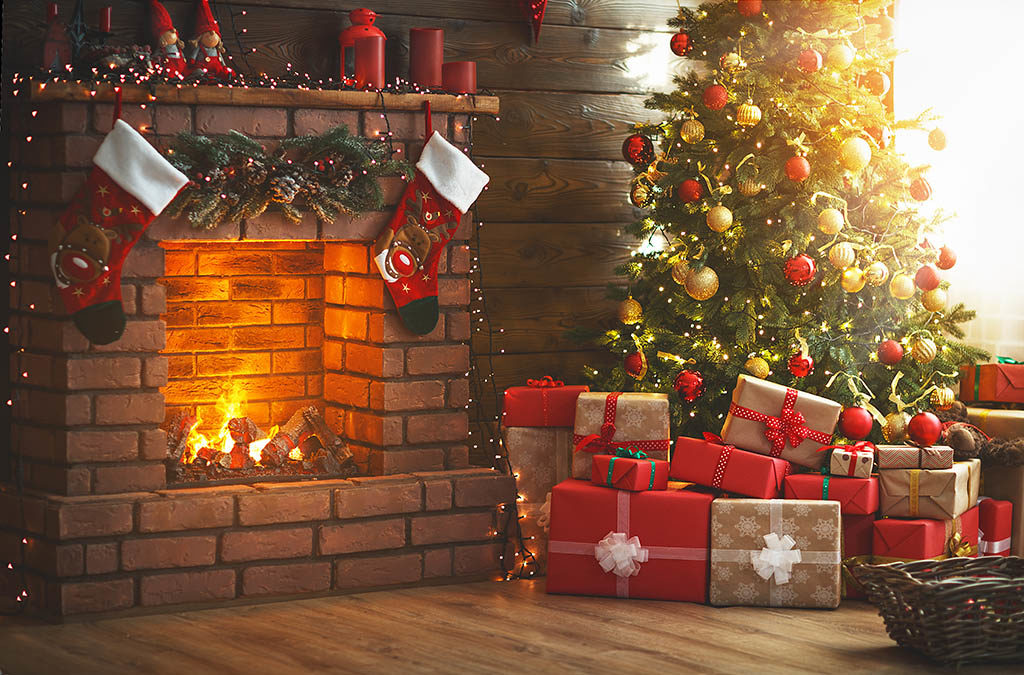
Your Fireplace Could be Increasing Your Energy Bill
If you are like many people who look forward to the months of winter, you likely use a fireplace to keep your home warm while the snow (okay, not in Venice, Florida) is falling outside. Sitting by the fire and drinking hot chocolate on a cold day is one of the simple pleasures in life, but homeowners often use fireplaces to save money on their heating bills, which makes sense from the surface. While correctly utilizing a fireplace can work wonders to reduce your energy consumption, making mistakes can increase your heating expenses more than you might think, and most people are not aware of the threat.
Close the Damper When You Don't Have a Fire
Knowing how your damper works is a good place from which to start when your goal is to avoid wasting energy. The damper in your fireplace allows you to increase or decrease the fire's intensity by making adjustments. It's a metal plate in your chimney that you control with a little valve, and you can open or close it without much trouble.
When you have a fire burning in your fireplace and want to enjoy the best results, keeping the damper open also enables the smoke to escape so that it won't leak back into your home. But when you don't have a fire, leaving your damper open is a waste of money, allowing the warm air from your home to flow outside.
Install Doors on Your Fireplace
Even if you use your damper to prevent warm air from getting outside, you will also want another layer of protection. You will need to have a door on your fireplace to create a seal that will prevent you from wasting energy. If your fireplace does not already have a door, getting one installed is a worthy investment that you don't want to overlook. The right door will go a long way when it comes to reducing your monthly expenses, saving you money over the long run.
The doors that you buy must fit if you want to get the most from your purchase. Reminding other people who live in your home to keep the doors shut is vital when you want to keep your spending under control, and you will know that you have done the right thing.
Seal Your Doors and Windows
Even though using a fireplace will heat your home and keep it warm, most of the heat is lost through the chimney. Depending on the type of fireplace you have, you might lose up to 90 percent of your heat, but you can try a few things to combat the problem.
Knowing how the air in your home flows and the role the fireplace plays will keep you on track. As the warm air escapes through the chimney, the air from the other parts of your home will rush in to replace it. Small cracks in your doors and windows will allow the cold air from outside to enter your home and lower the temperature, and you will want to prevent that from happening.
You can stop fireplace leaking air conditioning by sealing the cracks under your doors and windows with a weatherproof solution. You might not know if air is coming in from outside, but you can conduct a simple test. Place the back of your hand under each door and window in your home to get an answer. If you feel cold air hitting your hand, you have an issue that you need to address. Although it might not seem like much, this step can provide you with impressive results right away, and you will keep a little more money in your wallet each month.
Contacting an HVAC Expert
Although you can take several steps to reduce fireplace leaking air conditioning, you can't compete with the training and experience of a heating, ventilating, and air conditioning expert. You can hire an HVAC expert to search your home and fireplace for signs of energy loss that you can repair to increase your home's energy efficiency.
A talented expert will give you advice on how to get the most from your fireplace and HVAC system so that you won't need to worry about throwing money away. Your HVAC professional will ensure that your doors and windows are sealed and that you don't have issues with your vents. When you consider how much you can save by making a few corrections, you can see why enlisting an HVAC expert is an investment that you don't want to overlook. Call or Text us today for more details (941) 203-7955 and don't forget to check out our specials.
Have Your AC and Heating System Cleaned To Avoid Fires In Your Indoor Unit
Turning on the heater after prolonged lack of use is common in the winter, and can come with some very unpleasant odors. If you've left your heater off for at least a few months, you've probably noticed that there is an awful burning smell associated with turning it back on. It's considered pretty normal, and generally the smell goes away when the heating unit has been running for some time. There are situations where that smell could be cause for alarm, however. If you've noticed some of these smells or indicators, it may be time to call an HVAC professional for an inspection and cleaning. Doing so will allow you to enjoy your heating unit without a terrible burning smell, and with the assurance that it is being operated safely.
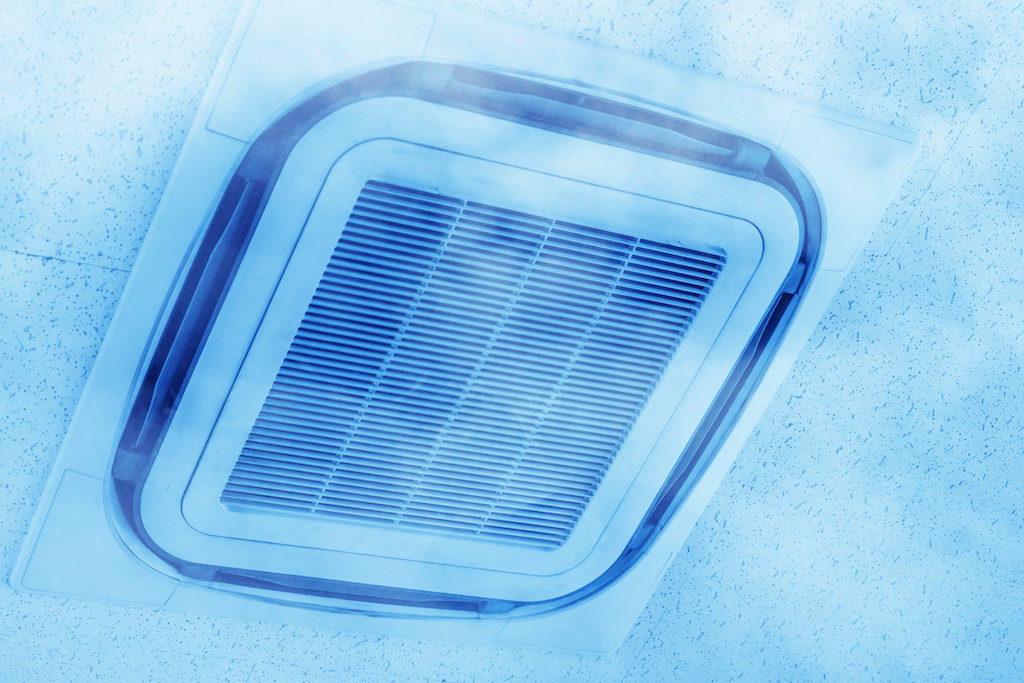
After months of accumulating dust, your heating system can get clogged up. Turning the system on will cause it to burn the dust away, contributing to the foul smell. The filter in your heating unit needs to be cleaned or replaced regularly to avoid it being clogged with dust and other unwanted material. Make sure that you're replacing or cleaning your filter per the manufacturer's recommendations. Reusable, cleanable filters are available for heaters that can save you both time and money.
Placing objects and materials too close to your heater can be cause for concern, as well. Any material that is flammable can potentially catch fire, causing a much larger issue than just a bad smell. Make sure that anything placed near your heating unit has adequate clearance in order to avoid major issues. Foreign material that could potentially cause a fire in your home can include decorations made of thin plastic and paper. You don't want to be worried about calling your local fire department when starting your heater!
If you smell something burning after starting your heating unit, make sure to take the steps above in order to ensure that it is clear from dust, clogging, and foreign material. For the safest experience, consider calling an HVAC professional to inspect your heater. An HVAC certified specialist can make sure that your unit is running safely, free of any debris. Professionals can show you the proper way of operating your unit, including regularly scheduled filter changes and maintenance.
HVAC experts can routinely maintain your unit in order to ensure that it runs properly and lasts as long as possible. Maintenance of your unit is almost always cheaper than replacing it, so it's definitely a good financial decision. If an issue is discovered, fixing a small problem is usually no problem at all, but allowing that problem to expand into something greater can mean disaster for your heating system. Your system will run more efficiently with routine maintenance and cleaning as well, giving your unit the longest-lasting life possible. Further, you'll experience a better overall quality of the air circulating in your home, so you won't have to worry about breathing in dust and grime.
When your heating unit is started for the first time in ages, keep the mentioned steps in mind. Check your filter, and replace or clean it as recommended. Make sure that there are no objects obstructing the heater. Make sure that you call an HVAC professional to inspect your unit. This expert will ensure that your system will run efficiently, cleanly, and safely. Having your heating system routinely maintained is a very small price to pay for the safety and protection of your home and family. With a freshly cleaned unit, you won't have to worry about that stinky burning smell coming from your heating system during this winter season.
Dirty Heater Coils in Your Air Handler are a Fire Hazard
One of the primary causes of heating issues in the home can be linked to dust inside the furnace. In Florida, residents rarely turn on their heating units except on the few cold days of the year. Dust and debris can restrict air flow and cause serious issues with the unit.

You wouldn't think that dust inside the furnace could cause such a serious problem, but the furnace in your home works on the same principle as your vehicle. You'd never go years without servicing your vehicle by maintaining the oil or changing the air filters. A dust-filled furnace won't work properly, but in more severe cases, it's been linked to home and business fires.
The Workings of Your Furnace
To understand the importance of maintaining your furnace, let's learn how the furnace operates. A system that uses forced air is one of the most common types of systems for Florida residents. It uses the same returns for central air, which is what most homes have in the state. A heat exchange warms air before blowing it into the ducts through the unit's fan. A return duct pulls air from the home, circulates the air through the heat exchange and blows it through the ducts. This circulation continues until the home reaches the correct temperature dictated by the thermostat.
How Does Dust and Debris Interrupt That Flow?
When the system sits for most of the year unused, dust and debris can accumulate on the heater coils in your air handler. The first day you turn on the system, the heat is trying to burn off the dust, but that might be difficult depending on the amount of dust on the system. Instead of burning away, the dust has the potential to catch fire. Along with the fire hazard potential, a clogged system may result from all that dust. Much of the dust buildup will clog the air filter. Reduced airflow to the system will cause the heat exchanger to work overtime, which can cause it to overheat. Along with an burned out heat exchange that can cause the system to fail, clogs can cause other serious issues like furnace failure.
Reduced and Unhealthy Air Flow
When the system is dusty and dirty, the air pulled through the filter and into the system can be filled with that debris. After it's heated, the dirty air is sent to the home through ducts that can be filled with dust too. Anyone with allergies or serious respiratory issues will find that the air is dangerous for them to breathe. If there are people without allergies, the air can still be a problem since it's filled with dirt and dust. It's not a healthy situation for anyone. Indoor air quality can be seriously compromised, and the effects can be very negative to your health over time.
What Should I do if I Smell Burning?
After you turn on the system for the first time, if you smell burning, you should immediately shut down the furnace. Make sure that there isn't a fire in the furnace and call emergency services if you see sparks or fire. If there isn't a fire in the unit, you should call a professional HVAC company who is experienced in cleaning and maintenance of furnaces in your area.
The best way to avoid a fire hazard in the first place is to have an HVAC company clean and check your system before you fire it up for the short heating season. The HVAC technician will clean the dirty heater coils as well as replace the filter, which will stop the dust from entering the system at all.
Getting Heat From Your Air Conditioner During Cold Weather
While most people know that central air is great for cooling down a home, most do not realize that this is actually the same unit that provides the heat in a home as well.
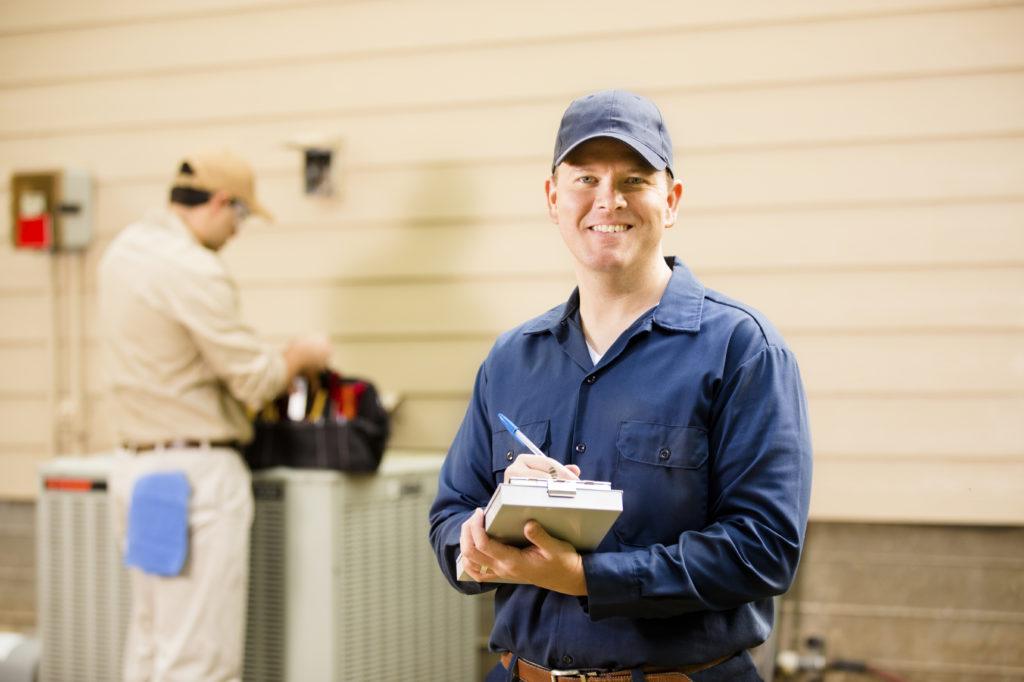
This kind of air conditioner, known as a heating, ventilation, and air conditioning unit, or HVAC unit, controls and regulates the interior air quality and temperature. However, with the winter months and the cold approaching these units are under stress from the severe weather. As such, some of these units may fail without proper servicing. If that is the case then owners may experience loss of heat. That does not mean that the home cannot be heated again, only that a different kind of heating is required.
On most thermostats, there is a red button that, when pressed, will turn on the emergency heating unit. If the primary heating unit fails, this backup will serve to heat the home until the HVAC unit can be serviced. Luckily, all homes that are in northern climates, or areas that dip below thirty five degrees, are required to have secondary heating. Under normal conditions, the HVAC unit will use both the primary heating unit and the secondary heating unit for any additional supplementation. When the primary heating unit fails, the secondary heating unit is engaged when the emergency heating button is pressed in order to replace the primary heating unit. While this is an excellent feature for emergencies, the secondary heating unit is not designed to replace the primary heating unit, and should only be used until the HVAC unit can be repaired.
The heat pump, or primary heating unit, is what heats your home during normal function of the HVAC unit. In the winter months, due to the extreme weather conditions, this unit could become damaged as it is often placed outside of the home. Whenever there is any kind of dangerous weather, it is important to check the unit to make sure that there is no visible damage. Snow, ice, and fallen tree limbs could compromise the unit and cause it to fail. The emergency heating unit will bypass the heat pump if it is damaged and still provide heat to the home. However, by bypassing the heat pump, the unit has to work harder and expend more energy, which, if the heat is electric, could wind up costing the owner a large amount of money. So while emergency heating is efficient for short term use, it should never be used to replace the heat pump entirely.
The best way to avoid any failure on the part of the HVAC unit is proper maintenance and servicing throughout the year. Common problems with air conditioners that are older arise from infrequent servicing. These problems include, refrigerant leaks, electric control failure, sensor problems, and drainage problems.
A refrigerant leak in an HVAC unit will result in the unit not supplying the needed cold air at the same efficient rate. The unit will have to work harder to maintain the cold air, costing you money and adding stress to the system. Furthermore, if the unit runs out of refrigerant, no cold air will come out at all no matter how low the thermostat is set. On top of that, if refrigerant is leaking it could damage the environment. If owners experience these problems, an HVAC technician will be able to diagnose and repair the leak.
If a unit is turned on and off frequently, the compressor or the fans could stop working due to corrosion on the electrical contacts or a connection issue. These contacts and connections should be cleaned and checked by a professional regularly.
Thermostats are designed to properly scan and analyze the room temperature and communicate to the HVAC unit to regulate the system. If the unit is moved or damaged however, it may result in improper analysis and erratic HVAC behavior.
Lastly, in humid environments with a high level of condensation, the condensate drain should be checked and unclogged as necessary to ensure that the unit drains properly.
If the recent cold weather in our area has you discovering problems with your heating system contact the HVAC pros at Mahle Cool Air and Heating.
